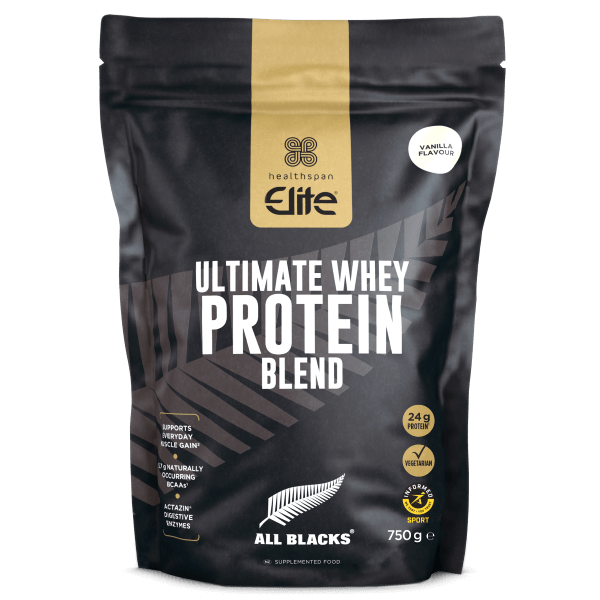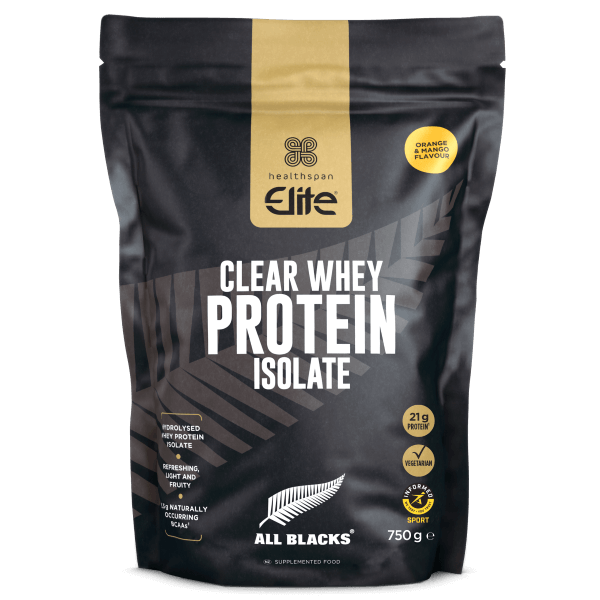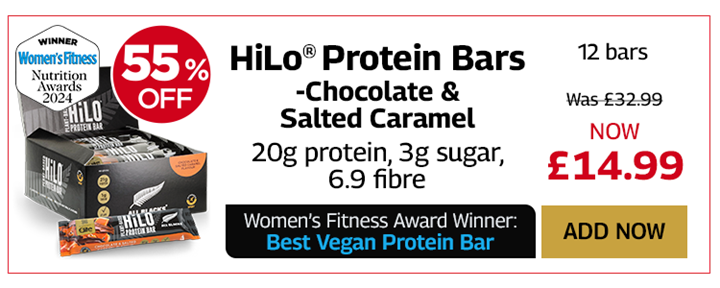How much protein do athletes need, and what's the best type to support their performance? Sports nutritionist Rob Hobson explains.
🕒 5 min read
Protein is one of the three macronutrients that the body needs to function correctly, along with carbohydrates and fats. Like carbohydrates and fats, protein provides the body with energy. More importantly, it ensures the production, growth and repair of muscle, bone, tendons, skin, enzymes and hormones.
All proteins comprise amino acids, of which there are twenty. Nine of these amino acids are referred to as essential and must be obtained from the diet, as the body cannot make them.
How much protein do athletes need?
UK dietary guidelines recommend 0.75g of protein per kg of bodyweight daily, calculated as approximately 56g for men and 45g for women (this is based on a sedentary population).
People engaged in sports may need more than this, even more so if their discipline is power-based. The currently available research suggests that the intake needed to support metabolic adaptation, repair and remodelling and renewal of protein in athletes ranges from 1.2-2g per kg per day.1
With the help of a protein shaker bottle, powders offer a convenient way for people to consume protein, particularly in post-training when there is little time to sit down and eat. Protein bars act as a high-protein snack, and offer a similar way for sportspeople to consume protein during the day.
These protein sources also contain amino acids, such as the branched-chain amino acid leucine, to ensure the right balance for muscle protein synthesis.
There are several different types of protein on the market, and this guide is here to help you choose the right one for your needs.
Whey protein
This protein is derived from milk and comes in two forms: concentrate and isolate. The difference between the two is dependent on the degree of processing.
Whey protein contains all nine essential amino acids, including a high concentration of the branched-chain amino acid leucine, which triggers muscle protein synthesis.
What is the main benefit of consuming whey protein?
Whey protein is effective at stimulating growth in humans.2 This is why whey protein shakes and bars are often taken to improve muscle protein synthesis and the growth of lean tissue mass.
Whey is often considered the best protein powder by sportspeople. Research has shown that whey protein supplementation offers some benefits compared to training alone when taken in tandem with resistance exercise. One study showed that males supplementing with whey protein had more significant relative gains in lean muscle mass.3
Further studies have shown a benefit to using whey over casein. One such study, published in the International Journal of Sports Nutrition and Exercise Metabolism, found that men supplementing with whey protein gained more strength and lean body mass than those using casein during a 10-week resistance training program.4
Whey protein has also been shown to perform better than soy in augmenting lean body mass, according to research.5
Who should use whey protein?
This protein powder is suitable for anyone who needs a good protein intake. Whey protein powders are also a convenient way to support the higher protein requirements of busy sportspeople.

Elite All Blacks Ultimate Whey Protein Blend
Protein powder co-created with the All Blacks
- 24g protein per serving to support muscle growth
- Added protease to break down protein for better absorption
- Available in vanilla, strawberry and chocolate. Low in sugar
What is whey protein concentrate?
This type of protein is found in milk alongside casein. Whey protein is a by-product of cheese production as the liquid part (whey) separates from the milk. Whey can also be separated from casein. Whey is the most-used type of protein powder within the sports industry.
What is the protein content?
Whey protein concentrate is about 70-80% protein and contains a little lactose (milk sugar) and fat.
Who is this suitable for?
Whey protein is usually well tolerated, although people with lactose intolerance may need to be more careful as it could trigger symptoms such as stomach cramps, bloating and flatulence.
When should you use it?
Whey protein concentrate is quickly digested, which is why it is recommended immediately after exercise to help with muscle repair and growth.
What is whey protein isolate?
Whey protein isolate is similar to concentrate, but has undergone extra processing steps to further filter out the protein. This processing reduces the amount of carbohydrate (lactose) and fat, resulting in a higher protein concentration.
What is the protein content?
Whey protein isolate is 90% or more protein, but because of the processing involved may lack other beneficial nutrients found in concentrate. This said, many isolate products are fortified with vitamins and minerals.
Who is this suitable for?
Given the lower carbohydrate, fat and overall calorie content of isolate, this product may be suitable for people sticking strictly to their macronutrient combinations. This product is also a better option for those who find that whey concentrate encourages unwanted symptoms of lactose, such as bloating or other digestive issues.

Elite All Blacks Clear Whey Protein Isolate
Clear, refreshing and light hydrolysed whey isolate
- Innovative alternative to traditional protein powders that doesn't require milk
- Refreshing, light and fruity alternative to traditional whey
- 21g hydrolysed whey protein isolate per serving
What about plant proteins?
Vegan protein powders use a variety of sources such as soy, pea, hemp, brown rice, potato and seeds. These powders are combined to achieve a good balance of amino acids, particularly the essential amino acids.
Like whey, vegan protein powders come as either isolate or concentrate, determining their protein concentration. However, the difference in protein concentration is less than with whey.
What is the protein content?
This varies depending on the source. Soy and pea sources contain the most significant protein concentration at 90% and 80% respectively, as well as being a source of all nine essential amino acids. The other vegan sources contain less protein; pea protein offers a good option for those unable to eat soy.
Who is this suitable for?
Vegan powders are suitable for those following a plant-based diet or with lactose intolerance. Research has shown that using vegan proteins produced similar outcomes in measurements of body composition, muscle thickness and strength (force production) compared to whey protein.6
Vegan protein powders generally contain around 25g of protein, which is optimal for muscle protein synthesis during the recovery phase after exercise. The body cannot take on any more protein than this in a single sitting, so protein intake should be spread across the day.

Elite All Blacks Plant Protein Vegan Blend
Plant-based blend from 3 protein sources, containing amino acids, BCAAs and Actazin digestive enzymes
- 23g vegan protein per serving from three plant-based sources
- Amino acid complex containing 4.1g BCAAs per serving
- With Actazin Digestive Enzymes from New Zealand kiwi fruit









